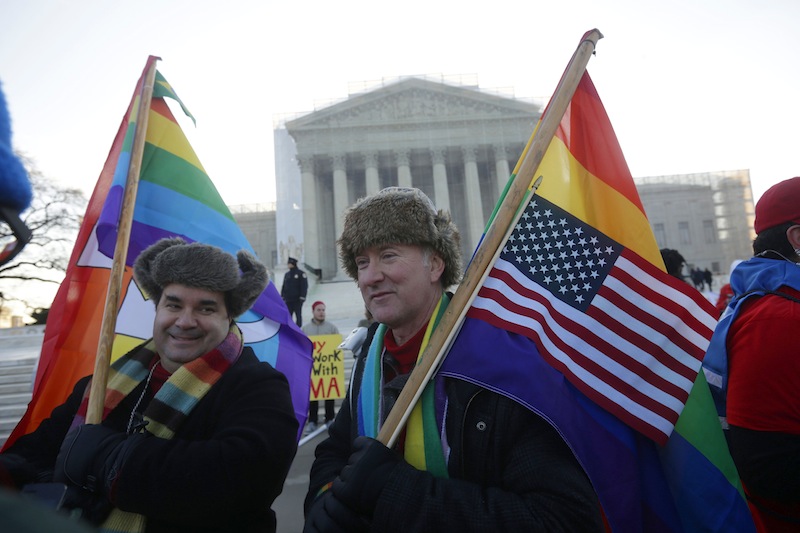One day after considering whether states may ban gay marriage, the Supreme Court will hear oral arguments Wednesday on a separate case about whether the federal government may deny equal marriage benefits to same sex couples legally wed in their state.
The case involves Section 3 of the 1996 Defense of Marriage Act, which prohibits federal recognition of same sex marriage, thereby denying married gay and lesbian couples the tax, retirement and immigration benefits that straight couples are afforded.
Like opponents of California’s ban on gay marriage, opponents of DOMA say it’s invalid under the Constitution’s equal protection clause. And the case also provides justices an escape route to dismiss it without ruling on the merits. But DOMA may be met with more skepticism with this conservative-leaning Supreme Court because it clashes with states’ rights.
There are three possible outcomes to the case, according to legal scholars.
First, the Court could uphold DOMA by determining that the federal government has a legitimate interest in treating straight and gay couples differently. The would continue the status quo unless and until Congress repeals the law.
Second, the Court could strike down DOMA upon deciding that married same-sex couples are entitled to the same treatment as married opposite-sex couples. That would provide tax and retirement benefits to gay and lesbian couples and let Americans sponsor a gay partner from another country for legal permanent residency.
Third, the Court could conclude that the case lacks standing and send it back to the lower courts for a do-over. The case is unique in that the White House has refused to defend a federal law, leaving the task to House Republicans. If a majority of justices decide that the House majority is not a proper party to defend this, the Court could punt the decision.
As was the case on Prop 8, the likely swing justice is Anthony Kennedy, who has written the Supreme Court’s two key opinions in favor of gay rights. He appeared hesitant Tuesday to impose marriage equality on all states but gay rights advocates are confident that Kennedy will side with them and strike down the Defense of Marriage Act.
Decisions on the DOMA and Prop 8 cases are expected by the end of June.










